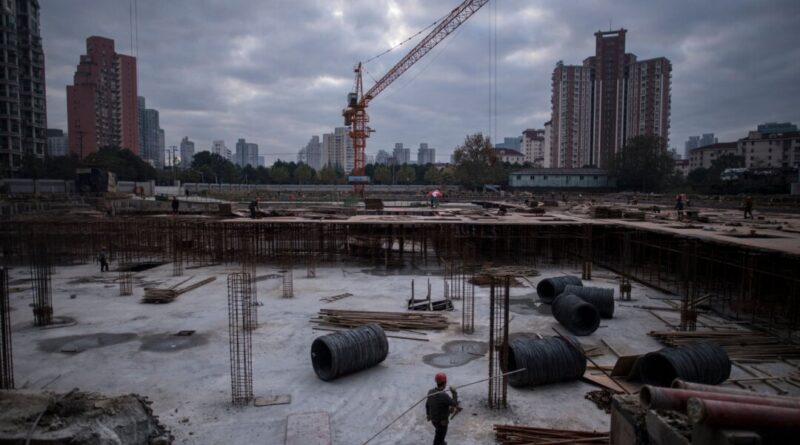China’s Cash-Strapped Local Governments Use Law Enforcement to Raise Revenue Amid Debt Crisis
Private properties are targeted as a revenue source for debt-ridden local governments.
News Analysis
China’s debt-ridden local governments have resorted to unconventional revenue sources as tax and land sale revenues dwindle amid the economic slump.
Central authorities have tapped law enforcement to raise revenues, such as fining or confiscating properties of private businesses, further straining China’s private sector and increasing tension between locales.
Local authorities have dispatched police to raid the property of enterprises in other provinces under the pretext of investigating economic crimes. Chinese state media described the move as “distant water fishing.” Such out-of-province police actions were usually justified based on local victims of alleged fraud.
Since 2023, police from other provinces have investigated and seized partial assets from nearly 10,000 businesses in Guangzhou, an affluent coastal city in Guangdong Province, according to Chinese media reports. One such case occurred in October 2023, when more than 1,600 police officers from Henan Province raided a health product company in Guangzhou on suspicion of fraud, leading to the closure of the company’s factory.
China’s National Development and Reform Commission has another name for “distant water fishing”: “profit-seeking law enforcement.”
On Oct. 8, the top economic planner called for ending illegal and profit-seeking law enforcement, standardizing law enforcement between provinces, and monitoring locales with “abnormal growth in fines and income confiscation” of the private sector.
Locales from the receiving end of such “distant water fishing” have started fighting back. Guangdong Province has introduced a new rule prohibiting public security officers from other places from freezing any in-province assets. A police station in Hangzhou of the wealthy Zhejiang Province announced that cross-local law enforcement without local partnerships was “illegal.”
Local governments’ fiscal situation has been on a downward spiral. Income from land sales, the primary local revenue source, decreased by 22.9 percent year over year for the first 10 months this year, according to China’s Ministry of Finance. Local governments struggle to make ends meet, yet Beijing requires them to deliver their share of the 5 percent gross domestic product (GDP) growth target.
‘Original Sin’
Zhao Haitao, a U.S.-based Chinese entrepreneur, recently told NTD’s “Pinnacle View” program that he had been subjected to a three-year investigation by the Henan authorities. The probe began in 2020, when the COVID-19 pandemic started. He fled the country to avoid having his assets confiscated by the authorities.
The former Chinese billionaire said that entrepreneurs in the country face pressure from all levels of government.
“Taxation and public security often create obstacles for businesses. Once the government decides to target you, it can resort to criminal law to punish private enterprises, and it’s easy for private companies to be trapped,” he said on the Chinese language program, which focuses on China’s current affairs.
In Zhao’s view, the Chinese Communist Party (CCP) sees private property ownership as an “original sin”; therefore, the private sector becomes a natural target and a source to squeeze for financial gains during difficult times.
Scrap Metal Cash-Out
Local governments have come a long way in raising revenue beyond regular channels.
In August, the finance and taxation authority of Bishan district, Chongqing municipality, set up a working group tasked with selling or revitalizing state-owned assets to address government debts. Authorities have described the initiative as a determined effort, with officials vowing to “smash pots and pans and sell them as scrap metal” to resolve the financial challenges.
This term has frequently appeared in this year’s work reports, budget reports, and public statements of officials from the provinces of Gansu, Jilin, Heilongjiang, and Guizhou.
Last December, the State Council stipulated the phrase in a governmental document requiring 12 priority provinces at high risk of debt to address debts and curtail investment projects. Those provinces include municipalities directly under the central government’s jurisdiction, such as Tianjin and Chongqing, and other provinces and regions, such as Inner Mongolia, Liaoning, Guangxi, Yunnan, Qinghai, and Ningxia.
The phrase “smashing woks and selling them as scrap metal” is not a new expression in the CCP’s history. In the 1950s, then-CCP leader Mao Zedong waged a Great Leap Forward movement to achieve industrialization in a decade or two. He called on the nation to smash their household pots and pans and use them for steel production.
China finance expert Lu Yuanxing, a marketing executive in several Chinese companies, told The Epoch Times that the scrap metal cash-out initiative reflects the desperation of the communist authorities—they are resorting to all kinds of assets to stay afloat.





